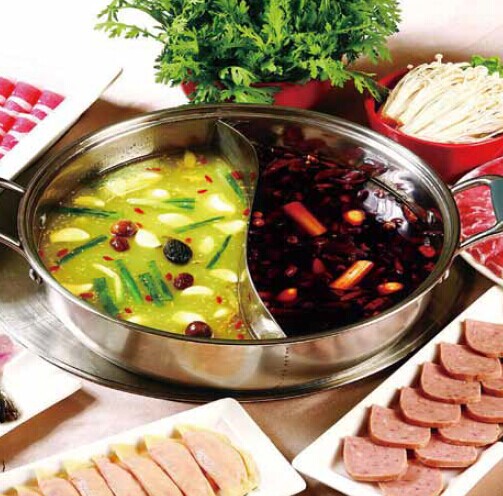By Doris Rathgeber
The winter season has finally arrived in the PRD and we feel the cold and humidity not only makes us shiver but actually penetrates deep into our bones. As such, we often prefer to stay indoors where we can
wrap blankets around ourselves and maybe even enjoy the warmth of a fireplace! We tend to be less active in winter and ancient Chinese claim that reduced activity in the winter is better for our health since it helps us live in harmony with the changing seasons. Nature undergoes the changes of yin and yang throughout the year. Yang peaks in the summer and is symbolized by brightness and warmth but yin peaks in the winter and is symbolized by coldness, darkness and humidity. While they peak in different seasons, we need both yin and yang throughout the year for all aspects of our internal and external lives. Yin is associated with specific organs and body functions that need extra support during the winter, and certain warming foods are recommended to stay healthy and protected against colds and flu. Many Chinese medicine specialists recommend eating seasonally and some of our favorite winter foods are lamb, beef, root vegetables and beans in either a soup or stew. You can also add some energizing spices such as garlic, ginger or cinnamon. Last, somewhat bitter flavors are also advisable, and you can add grapefruit, vinegar and even small doses of coffee, tea or wine to your menu. However, during this period you should avoid cooling foods (cucumber, melon, tomatoes) as well as cold drinks, since cooling products interrupt your digestion. While the food you consume can help prevent cold-related illnesses, the Chinese
also believe in a specific herbal supplement called Gaofang. Once a secret formula for the Chinese imperial court, the mixture has become famous for its capa-vbilities to replenish the qi and blood within both the Chinese and foreign community. The mixture is Individually prepared by a TCM doctor in accordance with each body’s constitution and usually consists of 30 to 40 different herbs and minerals. Every December, a big number of Chinese, from young to elderly, visit the doctors and pharmacies to get the syrup that they take twice a day for approximately six weeks. Let us not forget that our emotional state
also impacts our health and wellbeing in winter. Stress, frustration and emotional turmoil or even a lack of sleep can endanger our immune system. A famous ancient Chinese proverb states that only the
tiger that rests in winter has sufficient power to attack in spring. This can apply to humans as well and by scaling down our activities in wintertime, we can conserve essential physical and emotional energy in order to prepare ourselves for the upcoming springtime.
TCM in wintertime: Staying warm and healthy
By Urban Family, Dec 24, 2015 19:30
Get the weekly newsletter!
Sign up to get the entertainment, lifestyle and event news from Urban Family every week!
Related Articles
MoreThe Homework Homestretch
Apr 15, 2014 14:50
Urbanites Frozen Party
Dec 24, 2015 19:30
5 easy steps for healthier air and water
Apr 18, 2014 14:00
China tightening control on imported baby powder
May 01, 2014 12:00

















